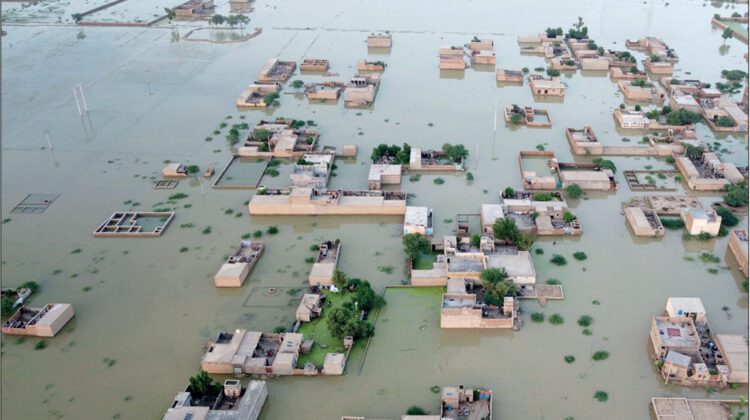

Pakistan’s Flood slashes the local economy
Economic toll and rebuilding costs will likely hit $30 billion, government officials say, wiping out entire growth
Recent catastrophic floods will wipe out economic growth and cause acute food shortages in Pakistan, officials warned, threatening anew to push a country already reeling from economic and political instability into default.
Tweet on food scarcity & devastation from floods
Pakistan crisis
Economic toll & rebuilding costs will likely hit $30 billion, government officials say, wiping out entire growth
Recent catastrophic floods will wipe out economic growth & cause acute food shortages in Pakistan, officials warned,via @wsj https://t.co/0ELdGLj1HZ— The_Journalbiz (@the_journalbiz) September 16, 2022
Pakistan was looking to an International Monetary Fund bailout it secured last month!
and additionally a package of global loan rollovers and investments to help restore finances hit hard by the price shocks caused by the Ukraine war.
- Government officials estimate at least $30 billion of economic damage and reconstruction costs, or about 10% of GDP.
The United Nations Development Program, with the World Bank and Asian Development Bank, expect to complete an assessment of flood damage and reconstruction costs by mid-October.
Domestic resources can only meet a fraction of the government’s estimated cost and the international aid received so far falls far short of the country’s needs. Pakistan is in discussions with the U.N. over holding an international donor conference to raise flood-relief funds.
Bond and currency markets, which had shown more confidence in Pakistan after the IMF deal, are again pricing in a high risk of the country defaulting on its foreign debt.
Since the end of August, the yields on some of the government’s international bonds have jumped by a third, while the currency is one of the worst performing in Asia, down 25% over the past 12 months.
Globally, more countries are deemed to be at a high risk of defaulting, after inflationary ripples from the Ukraine war coincided with rising interest rates in the U.S., adding to pressure on indebted nations. Sri Lanka defaulted earlier this year, while in Africa, Ghana is seen as being at high risk.








